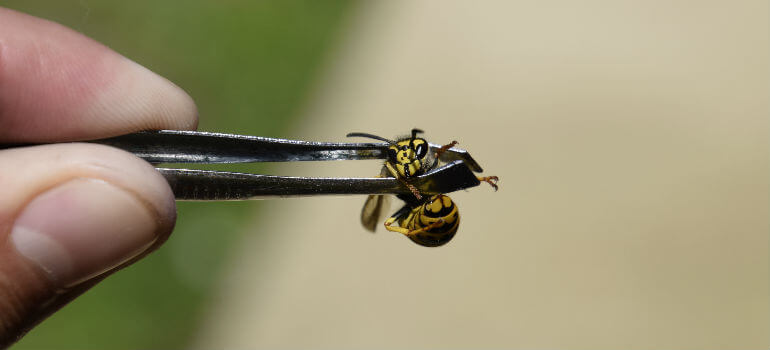
You know that spring and summer are in full swing when you start noticing bees buzzing around the garden. From producing honey to pollinating plants, our little, stripy friends are quite happy going about their business without antagonising us.
From time to time, though, bees can prove to be a nuisance and with the recent law changes, you can no longer use pesticides to deal with them.
So, what should you do to remove them?
Don’t worry! With our guide on alternative removal methods that don’t rely on the use of pesticides, you will be able to reclaim your space without causing significant harm to the bee population.
Table of Contents
Are bees dangerous?
Generally, bees are not aggressive or dangerous. However, under certain conditions, they can turn hostile pretty quickly. The most common situations, which can trigger aggressiveness in a hive, include:
- A lack of flowers and plants which produce nectar. Under these conditions, bees will begin attacking nearby hives in order to steal their nectar. The defenders will also release an attack pheromone to rally every available bee to protect the hive. Once this pheromone is released, everything in the surrounding area becomes a potential threat and a target, including humans.
- Lack of a queen. Bees without the leadership of a queen can become boisterous and aggressive until the queen is either replaced by the colony or a beekeeper.
- Rain, heat, and high humidity. As the humidity and chances of rain increase towards the end of summer, so do the chances of encountering bees with a very short temper. The humidity and heat make it difficult to maintain the ideal temperature inside a hive. This leads to bees which are quicker to anger and more likely to attack.
For most people, bee stings do not pose much of a risk to their health unless they are attacked by a swarm. But for those with allergies, bee stings can be deadly.
Regardless of whether a person has been diagnosed with a bee allergy or not, if the victim of a bee sting (or several stings) starts to exhibit symptoms such as nausea, vomiting, fainting, or swelling in the throat or eyes, you should seek medical attention immediately.
Here’s why you might want to get rid of bees
Even though bees are vital to life on Earth, this does not mean they have to share your home. It is generally accepted that bees are not pests. However, to determine whether you should deal with them and consider them as being a problem, you need to look at their behaviour.
There is a risk of some species causing damage to your home or becoming aggressive. Additionally, some people are severely allergic to bees, and one sting can be fatal. So, if you’d prefer to keep bees from settling on your property, here are some bee-friendly methods of keeping them away.
What to do when a bee gets in your house?
For many people, the first reaction upon discovering a bee trapped indoors is to, sadly, crush it with a rolled-up newspaper or kill it with bug spray. But there is simply no reason to indiscriminately kill these magnificent little creatures. Once they are back outside, they will happily continue collecting nectar and forget about their encounter with the giant hairless apes (us).
Instead of killing bee visitors, try to:
- Create an exit by opening windows and doors to let the bee find its own way back out;
- Trap it in a glass and deposit it outside a small distance away from windows and doors.
What to do if you are attacked by a swarm of bees?
In the UK, it is rare to be attacked by swarming bees. But just in case you accidentally provoked a hive into attacking you, here is what you should and should not do:
- If you spot a hive or see bees entering and leaving a certain area, you should leave immediately! Don’t approach the hive, don’t throw things at it, just leave it alone and walk away. If you feel that its location could prove to be dangerous to others, you should contact the local council.
- Pay attention to the swarm’s behaviour. If it is hovering nearby or a few bees purposely bump into you, then there is a good chance of escaping unharmed, as bees will try to warn you to leave before they resort to attacking.
- If you are being attacked, run and try to find an enclosed space in which to hide. Do not try hiding underwater, as bees have been known to wait above the water.
- Do NOT wave your arms around like a petulant toddler, and do not try to swat at the bees. These behaviours will only enrage the bees and lead to more attacks.
Are you dealing with a pest infestation?
You don't have to be alone in the battle against pests. Hire a professional pest expert!
Call usHow do you remove bees from your house without pesticides?
With bee populations rapidly decreasing worldwide, the last thing you should do upon discovering a beehive in your home is dousing it with pesticides. There is no good reason to participate in creating a bee-less future. So, before you call an exterminator, consider the following options:
- Call a local beekeeper. Since bee populations are declining, most beekeepers will be more than happy to remove the bee colony for you.
- Try natural repellents. As bees are attracted by sweet-smelling nectar, they can be repelled by pungent smells. Spread garlic powder, cucumber peels, or burn citronella candles near beehives in order to make them relocate.
- Call an exterminator. You should only do this if ALL other attempts at removing the bees have failed.
Check also: Ways to Get Rid of Bees Naturally
In order to prevent bees from returning or setting up shop in your house in the first place, consider undertaking one or more of the following suggestions:
- Inspect the outside of your property and seal any holes or cracks you find. This will stop bees from being able to enter narrow spaces, such as wall cavities.
- Fill any wall cavities with expanding foam or another form of insulation. This will deny bees the chance to build a nest in between your walls.
- Remove all traces of beeswax or honey. Bees are attracted to areas where other bees have created hives in the past.
- Grow citronella plants or burn citronella candles during the bee season. This is a natural bee repellent and can be quite effective at keeping bees away.
New EU draft regulations on the protection of bees
This year, the European Commission has introduced draft regulations aimed at reducing the harm caused to bee populations. The reason — the widespread use of certain insecticides and pesticides produced by a conglomerate of multinational chemical companies.
The draft regulations call for a complete ban on the use of neonicotinoids, which are the most widely used insecticides in European fields. There is substantial scientific data and evidence which shows that bees exposed to neonicotinoid insecticides suffer serious harm, and there is mounting evidence that these chemicals play a significant role in the so-called Colony Collapse Disorder effect worldwide.
The UN has also released a report within the last two months, which was highly critical of neonicotinoid insecticides and pesticides. They have called for a new global convention to stop the ecological devastation that is being caused by these products.
If you would like to get involved, click here to sign the petition that calls for the complete ban of these incredibly harmful insecticides.
What is so good about bees?
Bees and other pollinators are responsible for pollinating around 30% of the world’s flowering plants, crops, and wild plants. Without bees, it would be much more difficult to produce foods such as, but not limited to, almonds, broccoli, cherries, avocados, and even more. Upsetting bees would be the death of honey and royal jelly.
If this is not enough to convince you of the usefulness of bees, perhaps the fact that the declining bee population costs the global economy $5-6 Billion per year in lower crop yields and increased production costs will help you re-evaluate their importance.
So, there we have it, your quick guide to bees and how to naturally remove them from your home. Remember, try to remove or repel bees rather than kill them. The extinction of bees would have a severe impact on biodiversity as well as food production in the world.
Image source: Leonid Eremeychuck/shutterstock.com

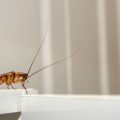


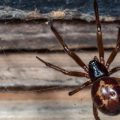
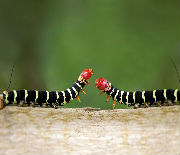
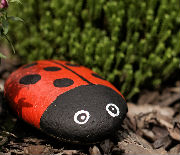
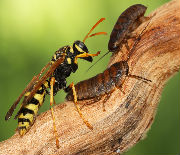
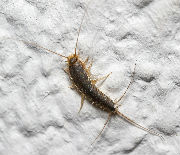
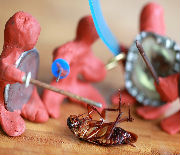
Thanks to the wonderful manual
You’re welcome, Joanna!
Bees have made a nest in my air condition unit which is in the wall and some of them come in on the inside I have a problem because I’m afraid to use my air condition unit because of this I am afraid of bees and I get rid of them when I see them in the house. Do I need to get an exterminator to take apart my air condition to get them out or will the citronella sents work. It’s winter now, but Im afraid when it gets warm they’re going to start creeping around on my carpet again or in my windows
Hello Elois,
Yes, you would have to call a professional to get rid of the bee or wasp hive inside your AC unit. Your situation is too complicated to try and repel them with smells.
Regards,
Fantastic Pest Control Team
How you gonna “remove” bee hive fantastic pest control?
Hello Mr Fisher,
Currently we don’t provide bee hive removal service. We can only treat a wasp nest.
Regards,
Fantastic Pest Team
Hello Mr Fisher,
Currently we don’t provide bee hive removal service. We can only treat a wasp nest.
Regards,
Fantastic Pest Team
I liked that you mentioned you need to consider calling a beekeeper to remove a bee colony from your house. My mother noticed a bee colony in her backyards, and we are looking for advice. I will let her know about the benefits of calling a beekeeper to help her remove the colony of bees from her backyard.